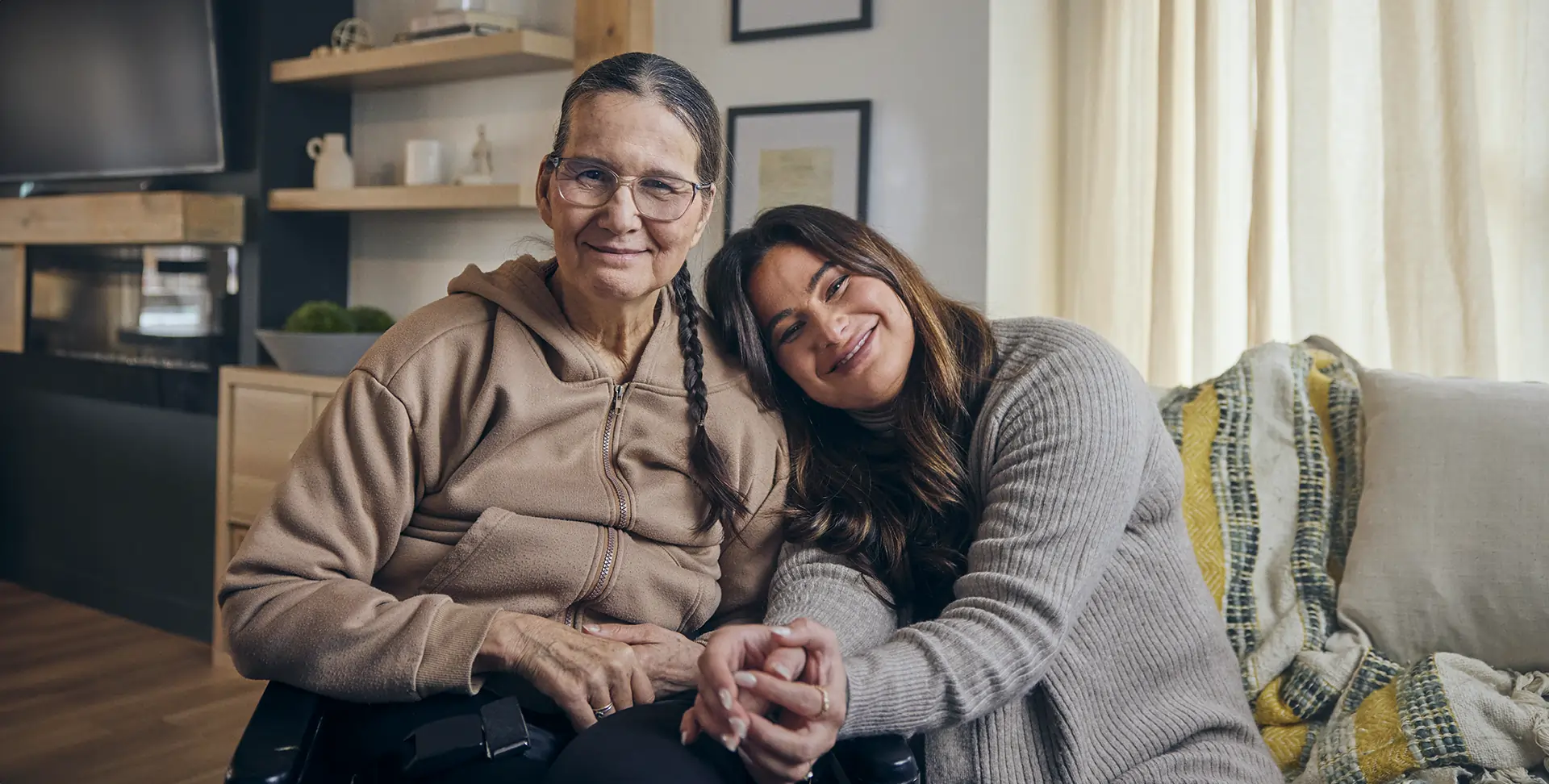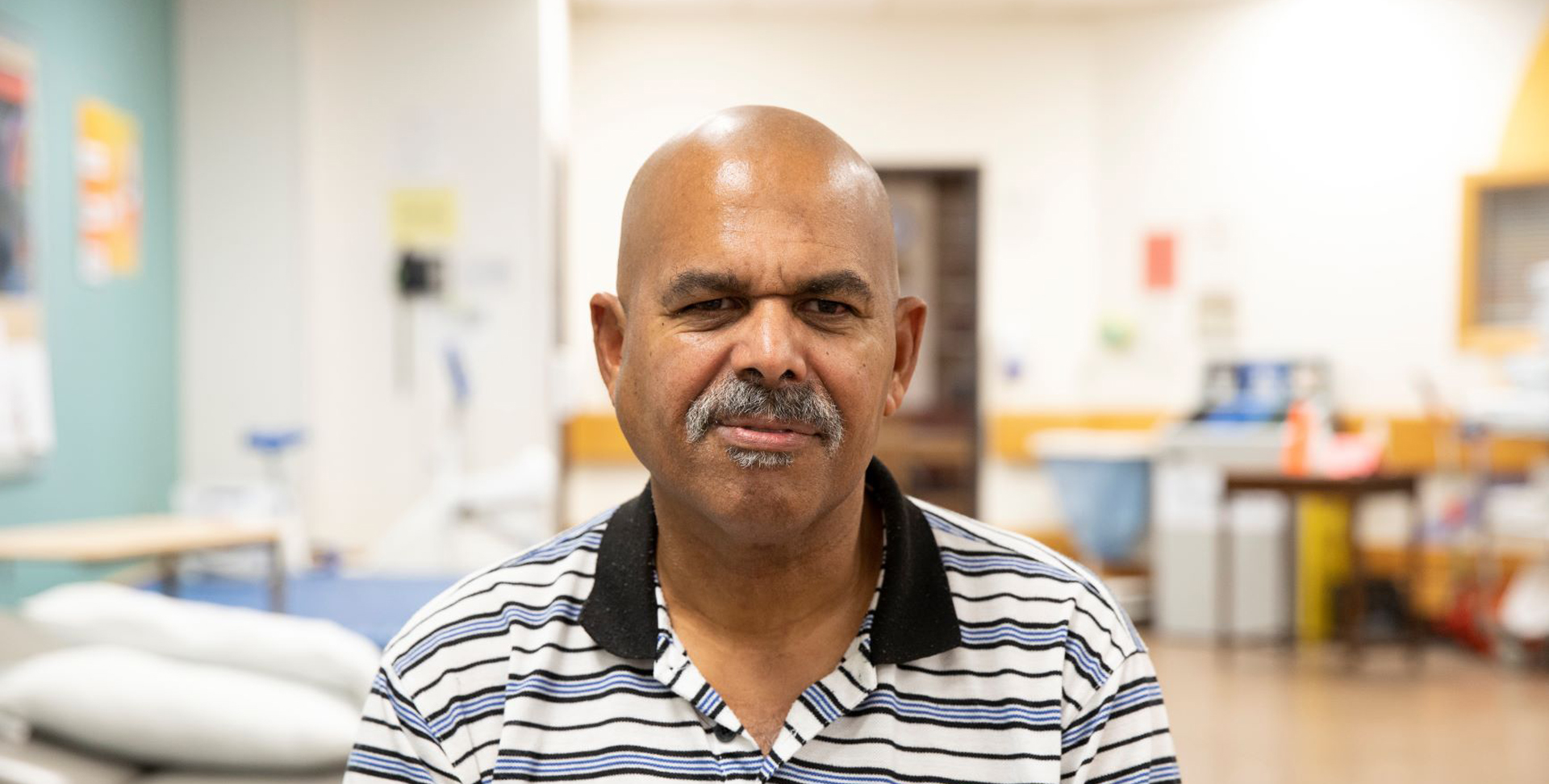
“Giving up is not in my vocabulary.”
Chapter 1 What matters
On Sept. 25, 2020, Michael Reynos couldn’t walk. He couldn’t get out of bed without help. He couldn’t move his right hand. And he had difficulty speaking and swallowing.
Michael, 57, had had a stroke. But during those first days in a Toronto hospital, he wasn’t feeling scared or sorry for himself. He was only thinking about his wife, Gwendolyn, and the stress she was going through. He worried about her 50-minute drive each way from their home in Brampton, Ont., to be with him.
Michael’s voice cracks with emotion as he talks about having Gwendolyn by his side at the hospital. “That was a big help and comfort.”
After four days, Michael was transferred to the West Park Healthcare Centre, a rehabilitation hospital. Initially he was quarantined in his room because of the COVID-19 pandemic.
Chapter 2 Determination at work
At West Park, Michael was clear when his rehabilitation specialists asked him his goals. He wanted to learn to walk again and recover enough strength in his right hand to carry his own bag when he went home.
When he told occupational therapist Amie Enns he wouldn’t be satisfied until he could walk without a cane, she answered: “OK, the hard work is up to you!” That was all the motivation Michael needed to pursue his exercises and speech therapy for hours each day. After just two weeks, he was walking with a cane.
Reducing the effects of stroke is the focus of many Heart & Stroke funded researchers. Dr. Yu Tian Wang, for example, is working to decrease brain damage caused by stroke. Scientists funded by the Heart & Stroke Partnership for Stroke Recovery are researching ways to help people like Michael recover better after stroke.
Michael’s therapists helped him fight through a few discouraging days; they assured him that periods of exhaustion are normal in the recovery process. Sure enough, he recalls, “The next day I would be feeling great.”
Michael credits his faith for helping him stay positive and focus on the future. “I can’t change what happened. But I can change tomorrow by what I do today.” Besides, he adds, moping about the stroke would have taken too much energy, and he needed every ounce for his exercises.
Chapter 3 Another journey begins
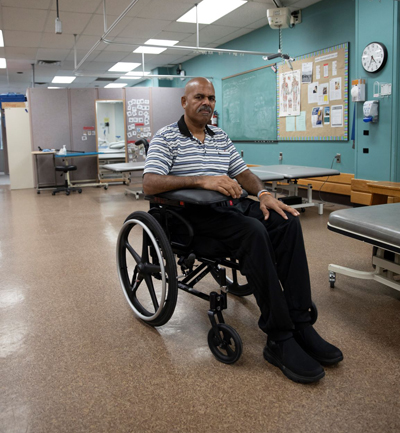
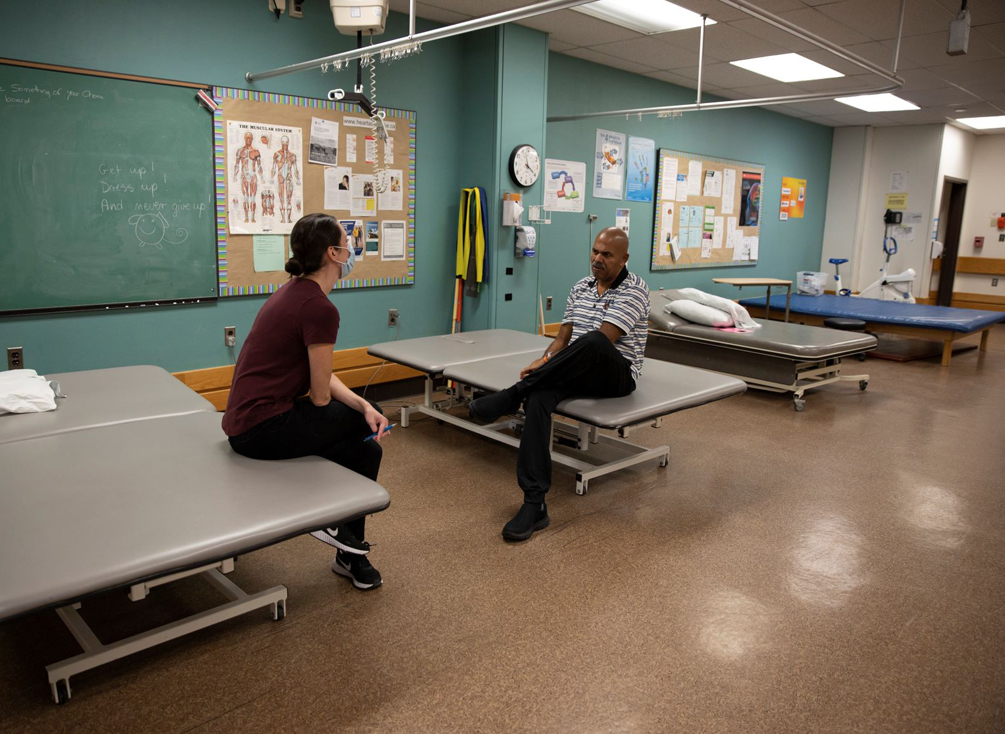
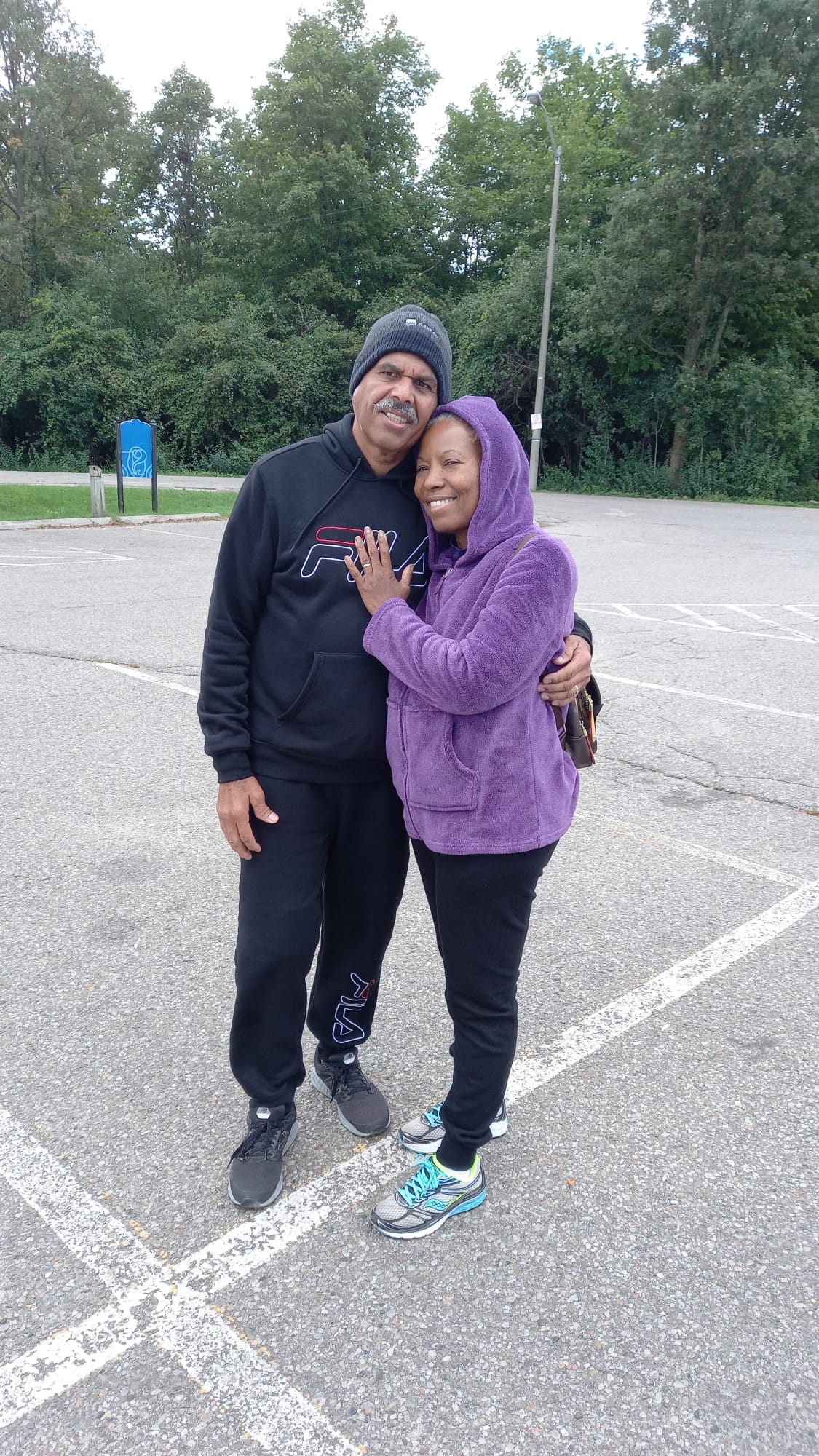
Michael and Gwendolyn share an affectionate moment.
Michael was uncertain if or when he would return to his job in housekeeping at the same hospital where his stroke was treated. But he was already eager to volunteer to help other people experiencing stroke.
Meanwhile he was determined to keep working on his rehabilitation as an outpatient, getting stronger day by day. “I’m not going to give up. It’s not in my vocabulary.”
A few weeks later, Michael wrote a poem about his experience, hoping to inspire other stroke survivors. Here is an excerpt:
Getting dressed using one hand is very hard, you understand.
I said to myself I have to walk again, no matter the pain.
With a lot of therapy, I gave all that is inside of me.
Michael is grateful to the team that helped him recover this far. And he is even more grateful to be home again with Gwendolyn. “I have the best wife in the world!”
- See what your donations can beat.
- Learn more about stroke recovery.
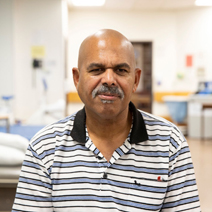
More stories

Tackling the emotional impacts of stroke
Dr. Swati Mehta helps people embrace an altered future
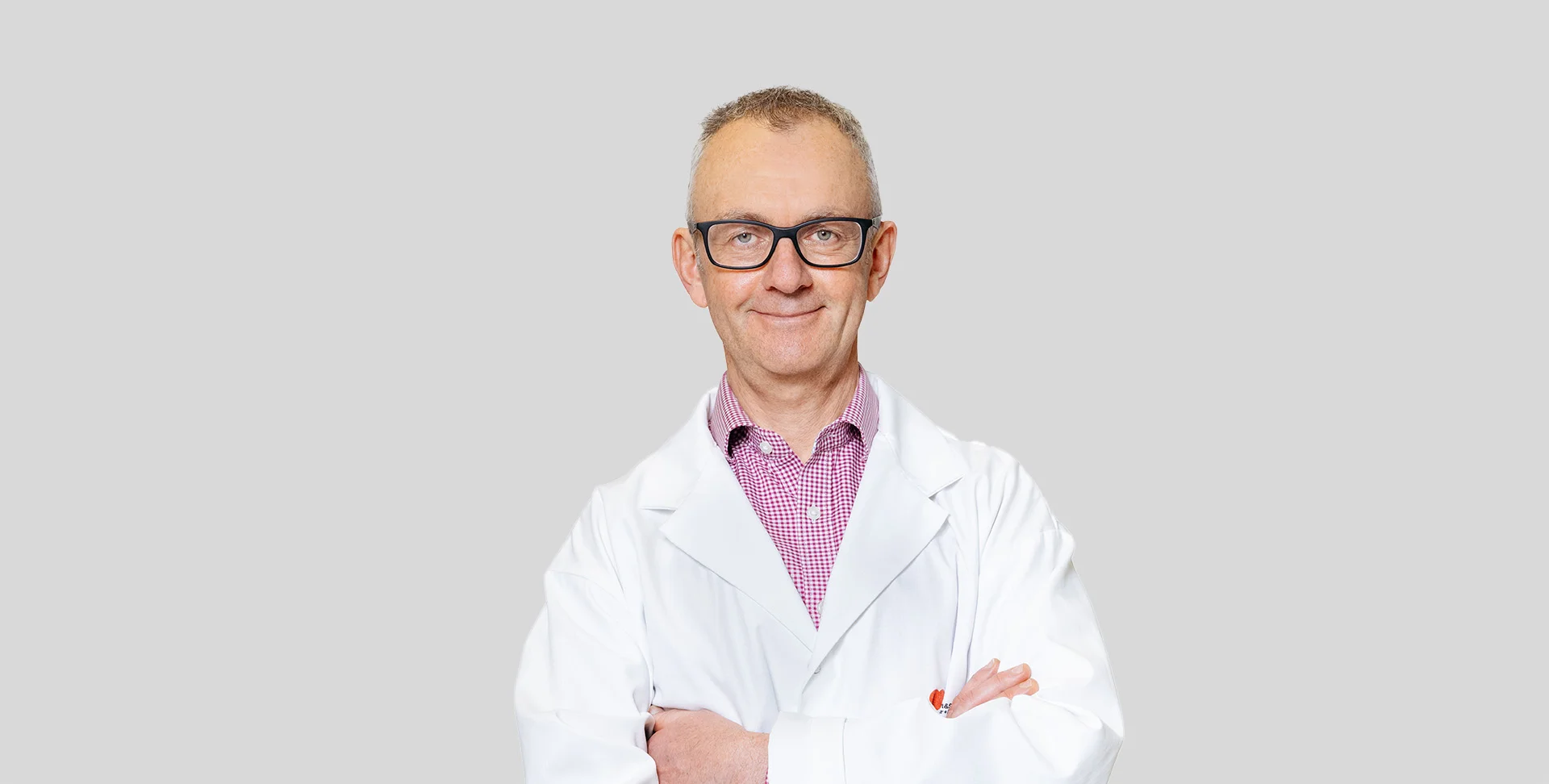
Taking aim at a key cause of dementia
Dr. Philip Barber uses machine learning to take aim at vascular cognitive impairment
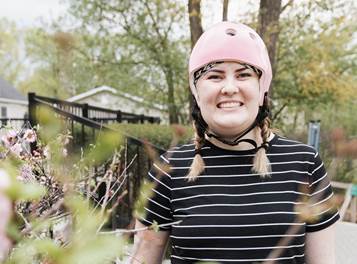
After a stroke at 24
Surgeons finally put Courtney’s skull back together. Then she had to put her life back together.
